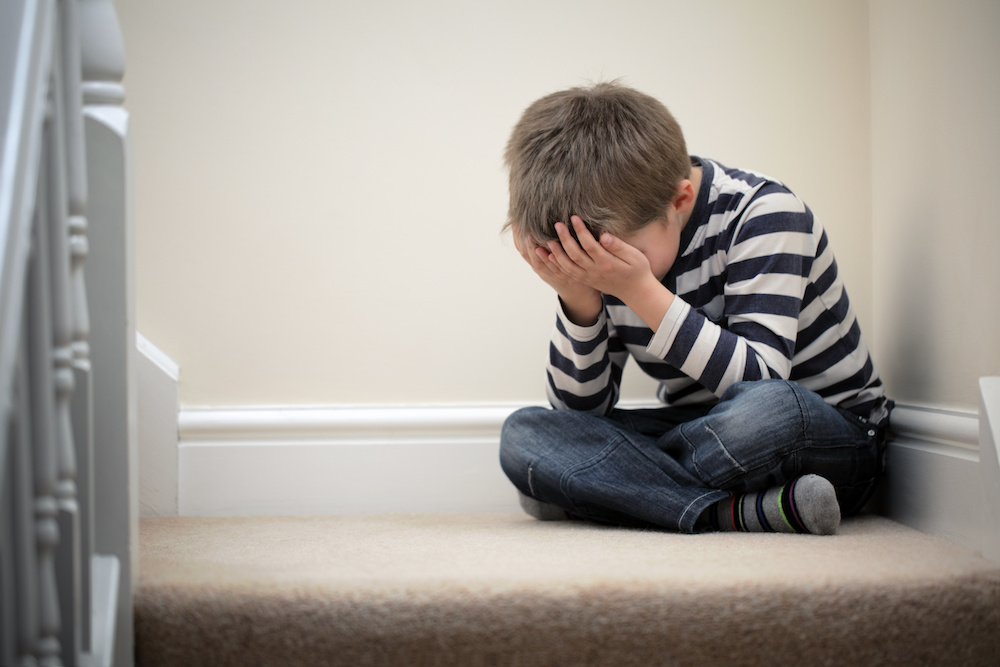Help Your Kids Combat the Uncertainty

Certainty is a comfort, and it is gone.
It is January 1st, a day to reflect on the old and eagerly anticipate the new. While it is as easy as ever to look back, looking ahead has become something of a challenge. In our new cancel culture, certainty feels like a thing of the past, relegated to a quaint memory where it will sit in a room with typewriters and walkmans. Remember when we had no spell check? Remember when we had to go to a store to buy music? Remember when we could plan parties and class trips and work days? Ahhh, the good old days.
The news this morning was full of articles describing the traditional New Year celebrations around the world that did not happen. No matter where you land on continued shut downs, vaccine mandates and virtual substitutions for real life, it is important to acknowledge uncertainty is taking its toll. With experience, we all learn that outside forces beyond our control can change plans and alter the course of our life, but for the most part, we have always been able to plan on the simple things. I will get up tomorrow and go to school or to work. This weekend, I will see friends and enjoy their company. I can buy concert tickets and plan vacations and have lots of things to look forward to. I will mark the holidays and anniversaries with traditions my family and I hold dear. This constancy is valuable and settling. Certainty is a comfort, and it is gone.
It is all too easy to see the effects of this loss in the mental health of my patients, parents in particular. It isn’t just the logistics of not being able to organize and plan for the future of our family with any degree of confidence, the lack of certainty has us off balance. Two years of knowing we may have to pivot at any moment to accommodate online school, contact tracing, quarantine requirements, work shutdowns, and more, combined with some real fear about getting sick, has us unsettled and off kilter. Our mental wellbeing is suffering, and our kids are learning by example.
We teach our children a stove is hot. Don’t touch. Cars are dangerous. Look both ways. These lessons get into their makeup and serve to keep them safe through a lifetime. These early lessons stay with them, and we want them to. Mask up, don’t get too close to other people, school may or may not happen, parties are scary. These lessons will stick as well. Do we want them to? Kids thrive on consistency and being able to count on the people and events around them. Stability and security allow them to grow and learn in an environment that feels safe and secure. The pandemic has been threatening this for a damaging amount of time. Two years is a long time for an adult. On a percentage of life basis, it is a far longer time for a child.
The restrictions and last minute changes are outside of our control for the most part, making it even more important we start infusing some certainty into the lives of our kids. The mental health crisis our younger generations are experiencing is all too real, and even if every person on the globe is fully vaccinated and the variants go away, we will be seeing the effects for some time. We have to get proactive about prevention in our workplaces, schools and in our homes.
Let us control what we can control. Here are some simple ways you can help your kids regain a sense of certainty at home.
- Turn off the news. This is as important now as it was in March 2020.
- Make simple plans you know you can keep. Taco Tuesdays. Friday night game nights. Talk about being excited for an upcoming family event, as in, “I can’t wait for Tuesday, I’m craving Mexican food.”
- Avoid the “what if” conversations, especially around your kids. The time wasted discussing things that may never happen is not only unproductive, it is unnecessarily unsettling.
- When pivoting is required, try to take it in stride and place the focus on the things that are the same.
- Stick to schedules, even in quarantine.
- Listen to your children and answer only the question they are asking. Kids are amazing at self-regulating the information they can handle. Just like the where do babies come from conversation, when it comes to covid, don’t assume they need to know more.
- Show gratitude for the things your family can count on, whether it be a roof over you head, food on the table or even your favorite Netflix show.
- Finally, love your kids like crazy, out loud and with unabashed affection. At the end of each day and at the end of this pandemic, it will bring them great comfort to know they are loved unconditionally and with absolute certainty.




















